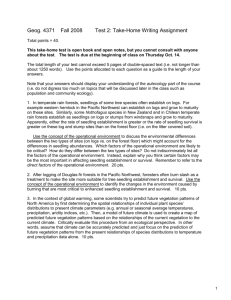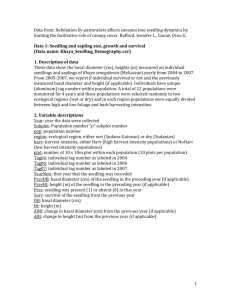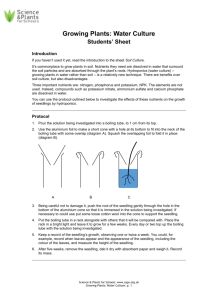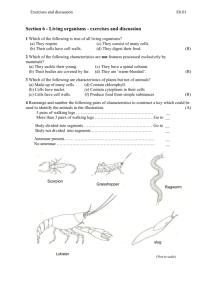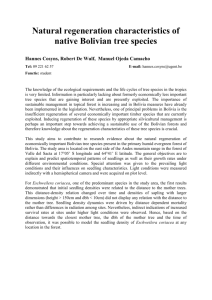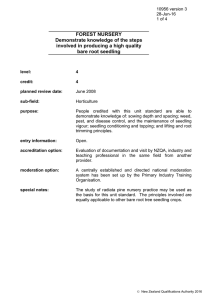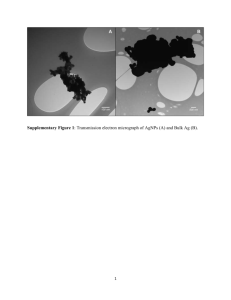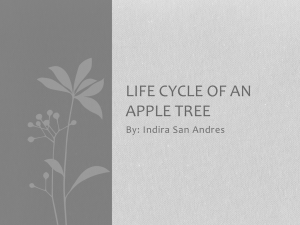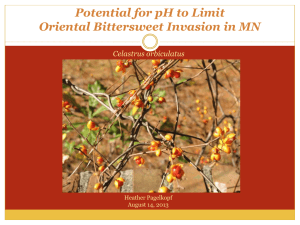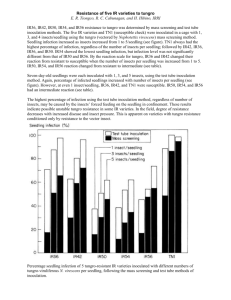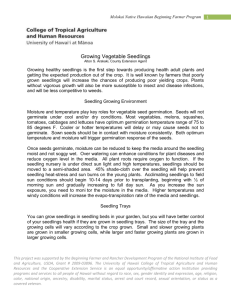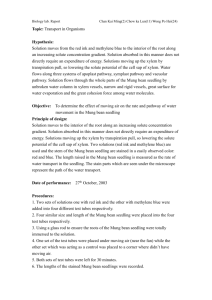Facilitating efficient Rosaceae tree fruit breeding by modeling
advertisement
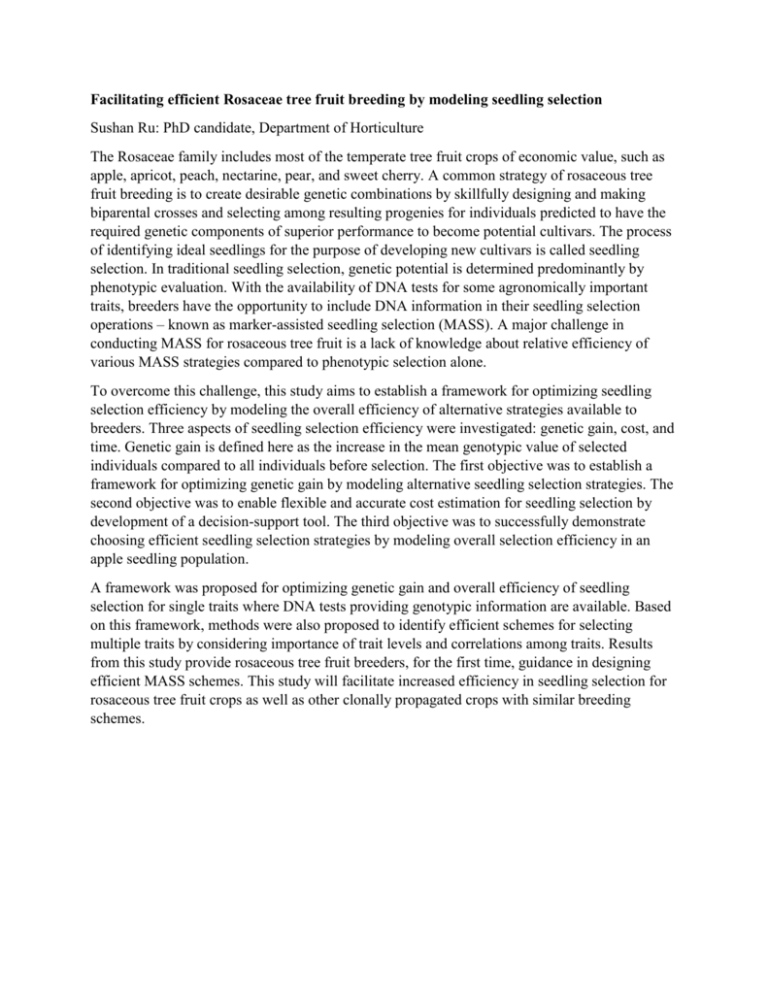
Facilitating efficient Rosaceae tree fruit breeding by modeling seedling selection Sushan Ru: PhD candidate, Department of Horticulture The Rosaceae family includes most of the temperate tree fruit crops of economic value, such as apple, apricot, peach, nectarine, pear, and sweet cherry. A common strategy of rosaceous tree fruit breeding is to create desirable genetic combinations by skillfully designing and making biparental crosses and selecting among resulting progenies for individuals predicted to have the required genetic components of superior performance to become potential cultivars. The process of identifying ideal seedlings for the purpose of developing new cultivars is called seedling selection. In traditional seedling selection, genetic potential is determined predominantly by phenotypic evaluation. With the availability of DNA tests for some agronomically important traits, breeders have the opportunity to include DNA information in their seedling selection operations – known as marker-assisted seedling selection (MASS). A major challenge in conducting MASS for rosaceous tree fruit is a lack of knowledge about relative efficiency of various MASS strategies compared to phenotypic selection alone. To overcome this challenge, this study aims to establish a framework for optimizing seedling selection efficiency by modeling the overall efficiency of alternative strategies available to breeders. Three aspects of seedling selection efficiency were investigated: genetic gain, cost, and time. Genetic gain is defined here as the increase in the mean genotypic value of selected individuals compared to all individuals before selection. The first objective was to establish a framework for optimizing genetic gain by modeling alternative seedling selection strategies. The second objective was to enable flexible and accurate cost estimation for seedling selection by development of a decision-support tool. The third objective was to successfully demonstrate choosing efficient seedling selection strategies by modeling overall selection efficiency in an apple seedling population. A framework was proposed for optimizing genetic gain and overall efficiency of seedling selection for single traits where DNA tests providing genotypic information are available. Based on this framework, methods were also proposed to identify efficient schemes for selecting multiple traits by considering importance of trait levels and correlations among traits. Results from this study provide rosaceous tree fruit breeders, for the first time, guidance in designing efficient MASS schemes. This study will facilitate increased efficiency in seedling selection for rosaceous tree fruit crops as well as other clonally propagated crops with similar breeding schemes.
